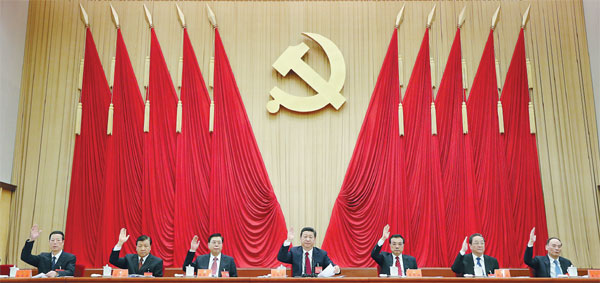Party points way for rule of law
Updated: 2014-10-24 07:58
By An Baijie in Beijing and Zhang Yuwei in New York(China Daily USA)
|
|||||||||
|
Top leaders including Party chief Xi Jinping attend the Fourth Plenary Session of the 18th Central Committee of the Communist Party of China in Beijing. Lan Hongguang / Xinhua |
Key meeting agrees on penalties for those abusing their power
Government officials will be given demerit penalties and held accountable if they are found to have interfered in lawsuits, under a decision taken at a key meeting to advance the rule of law.
The move is aimed at ensuring that judicial power is exercised independently, according to a statement issued on Thursday after the Fourth Plenary Session of the 18th Central Committee of the Communist Party of China.
The meeting decided that the top court will initiate a pilot project to set up cross-administrative region courts and procuratorates. This is expected to prevent local government officials from interfering in judicial cases.
The statement also said that a mechanism will be established to recruit judges and prosecutors from qualified lawyers and legal experts.
The meeting, held from Monday to Thursday, was presided over by the Political Bureau of the CPC Central Committee, the country's top leadership body. It adopted a decision from the CPC Central Committee on "major issues concerning comprehensively advancing the rule of law".
This is the first time that a plenary session of the CPC Central Committee has taken the rule of law as its central theme. A total of 363 members and alternate members of the committee attended the meeting.
The main aim of the Party's drive to advance the rule of law is to "form a system serving the socialist rule of law with Chinese characteristics" and build a country with socialist rule of law.
"To realize the rule of law, the country should be ruled in line with the Constitution," the statement stated.
The National People's Congress, the country's top legislature, should play a better role in supervising the implementation of the Constitution, it said.
Assessment of officials will take the way in which they implement the rule of law into consideration, according to the statement.
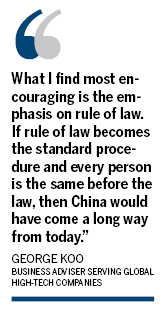
Ying Songnian, a professor at China University of Political Science and Law, said the plenum has drawn up a blueprint for the implementation of "governance by law".
Government leaders should set an example in abiding by laws and regulations, but many officials have violated laws through corruption and abuse of power, he said.
Some central government departments have made a good start by streamlining approval procedures and delegating some of their approval powers to lower-level authorities, Ying added.
Ma Huaide, vice-president of China University of Political Science and Law, said that under the current appraisal system many government officials make economic growth the top priority and neglect the implementation of the rule of law.
Research carried out by Ma last year found that only 36 of 53 cities sampled, including Beijing and Shanghai, reached the pass mark in an assessment of "governance by law". None of the city authorities scored higher than 80 out of 100 points.
Lawsuits should be more transparent and the law enforcement process should be supervised more effectively, Ma said.
Evan Ellis, a professor of Latin American studies at the US Army War College Strategic Studies Institute, Carlisle, Pennsylvania, who studies Latin America's relationships with China, said the highlights of the Fourth Plenary have a "promising focus" in terms of the transparency of government affairs and building a law-abiding society.
"It resonates well in the US," said Ellis. "It is not only important for China, but also for China's relations with other countries." A communiqué out of the session on Thursday showed its focus on "comprehensively advancing the rule of law" in China.
Zhiqun Zhu, director of the China Institute at Bucknell University in Pennsylvania, said the communiqué demonstrates the party's commitment to govern by upholding the constitution.
"It suggests that the party is moving from talking about rule of law to implementing it in China's political life now," Zhu said. "It is part of the ongoing deepening political reform that the party presides over after successfully introducing economic and social reforms in the past three decades," said Zhu.
Geoffrey Sant, special counsel at US-based law firm Dorsey & Whitney LLP, said some points made in the communiqué showed that the Chinese government views the "judiciary as an appropriate check on local officials and local law-making".
"It is particularly striking that the communiqué states that the government will take actions to avoid letting local government officials interfere with court cases," said Sant.
"This seems to be a continuation of the PRC government's efforts to crack down on corruption. The communiqué appears intended to send a warning that the government will crack down further on those who would attempt to interfere with legal cases for their own personal benefit," he added.
George Koo, a Silicon Valley-based business adviser serving global high-tech companies for 30 years, said the summary of the communique consists mostly of overview statements of how China will be governed.
"Future outcome will depend on how these overview objectives are actually implementation. What I find most encouraging is the emphasis on rule of law. If rule of law becomes the standard procedure and every person is the same before the law, then China would have come a long way from today," Koo said.
Contact the writers at anbaijie@chinadaily.com.cn and zhangyuwei@chinadailyusa.com
Amy He in New York, Chang Jun in San Francisco and Liu Chang in Washington contributed to this story
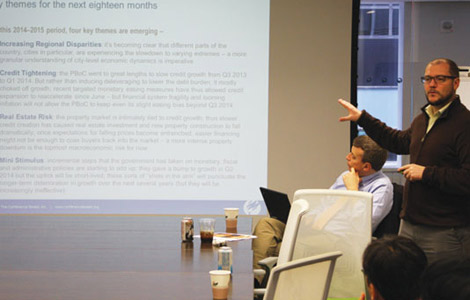
 China's economy in 'transition': expert
China's economy in 'transition': expert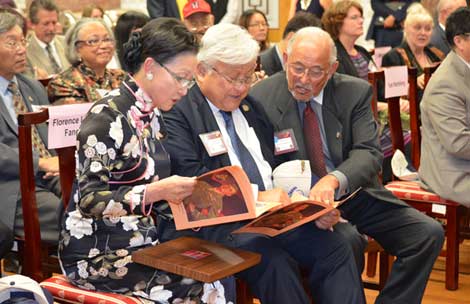
 WWII's Flying Tiger veterans saluted
WWII's Flying Tiger veterans saluted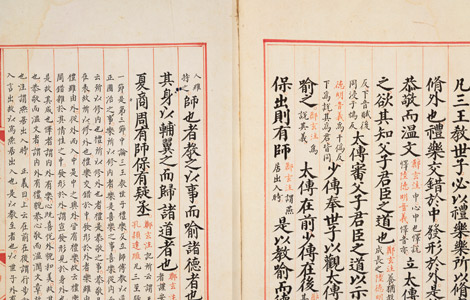
 600-year-old Chinese book found in California
600-year-old Chinese book found in California
 China's growing role in Mexico not a threat to US: expert
China's growing role in Mexico not a threat to US: expert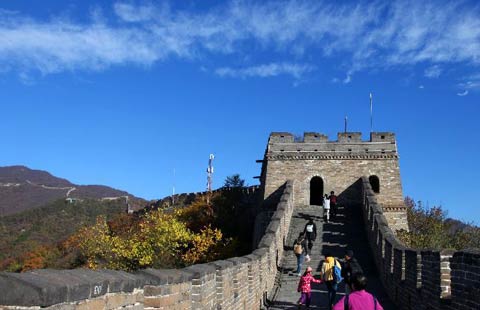
 Beijingers see blue sky again after smoggy days
Beijingers see blue sky again after smoggy days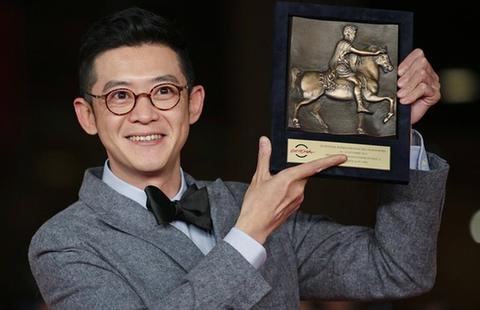
 9th Rome Film Festival kicks off
9th Rome Film Festival kicks off
 Highlights of China Fashion Week
Highlights of China Fashion Week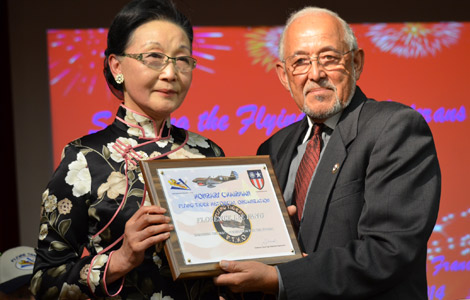
 Remembrance of Flying Tigers & WWII Veterans
Remembrance of Flying Tigers & WWII Veterans
Most Viewed
Editor's Picks

|

|

|

|

|

|
Today's Top News
China's economy in 'transition': expert
Investors eye US-made plastic alternative
China's growing role in Mexico not a threat to US: expert
Redesigned SAT test 'won't brainwash'
600-year-old Chinese book found in California
Asia, LatAm to lead air travel by 2034
Improving air quality as 'priority'
The road goes on for teacher Levine
US Weekly

|

|
